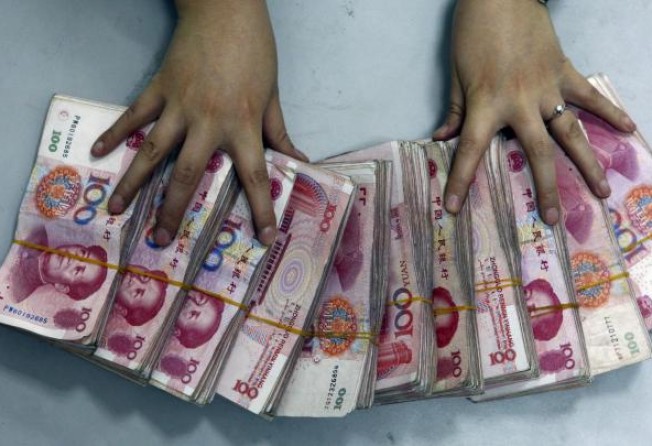Thousands fall victim as shadow bankers vanish amid China's slump

To live out his retirement years, He Zhongkui was counting on steady income from an investment that promised interest payments five times higher than what he could earn in a bank.
Now He, a 62-year-old former municipal official in Wenzhou who rides a rusty bicycle, is cutting back on food and petrol, having found himself one of a growing number of victims of the mainland's nebulous world of shadow banking.
A "friend", who he said had been paying him 2,400 yuan (HK$2,945) a month after he gave him a third of his 600,000 yuan life savings to invest in real estate, suddenly disappeared. So did the payments and principal.
"I called, but the number was no longer in existence," He said.
The country's slowest economic growth in three years and a slumping property market, where many so-called shadow-banking investments are parked, are squeezing millions of Chinese who have invested the money of friends and acquaintances chasing higher yields to honour those payments.
The shadow bankers are now disappearing, committing suicide or reneging on agreements, leaving thousands of victims in their wake. In the first half of the year, more than 58,000 lawsuits involving disputes comprising 28.4 billion yuan in private lending were filed in Zhejiang province, where Wenzhou is located.
Private-lending victims nationwide filed more than 600,000 lawsuits valued at 110 billion yuan last year, an increase of 38 per cent from 2010. In the first half of this year, the number of filings rose 25 per cent to 376,000, according to People's Court, a newspaper run by the Supreme Court.
In Wenzhou, an export hub where almost 90 per cent of families have taken part in underground lending, more than 100 people had fled, committed suicide or declared bankruptcy since August last year, and at least 800 lending brokers had gone bankrupt, Xinhua reported in May. Home prices there fell 16 per cent in July from a year earlier, the fifth consecutive monthly drop, according to the National Bureau of Statistics.
"It's time for payback for the unchecked growth of China's shadow-banking activity," said Yao Wei, a Hong Kong-based economist at Societe Generale, who estimates that as much as 2 trillion yuan of underground lending may default eventually.
"The risks are culminating, and part of the system is doomed to collapse. On the flip side, this gives policymakers an opportunity to put in place oversight for a sector that should have been regulated a long time ago."
Private lending between individuals is believed to be worth US$1.3 trillion, according to research firm IHS Global Insight. Interest rates can reach as high as 100 per cent.
The lending is part of a shadow-banking system that also includes the off-balance-sheet business of banks and trust companies and totals as much as US$2.4 trillion, about a third of the official loan market, according to estimates by Societe Generale.
Shadow banking is prevalent on the mainland because more than 90 per cent of the country 's 42 million small businesses are unable to get bank loans, while such investments offer returns at least several times higher than deposits.
Banks also are feeling the pinch. Non-performing loans increased for three consecutive quarters to June to 456.4 billion yuan, the longest streak of deterioration in eight years, according to the China Banking Regulatory Commission.
Loans overdue more than one day jumped 27 per cent in the first half at the country's five largest lenders.